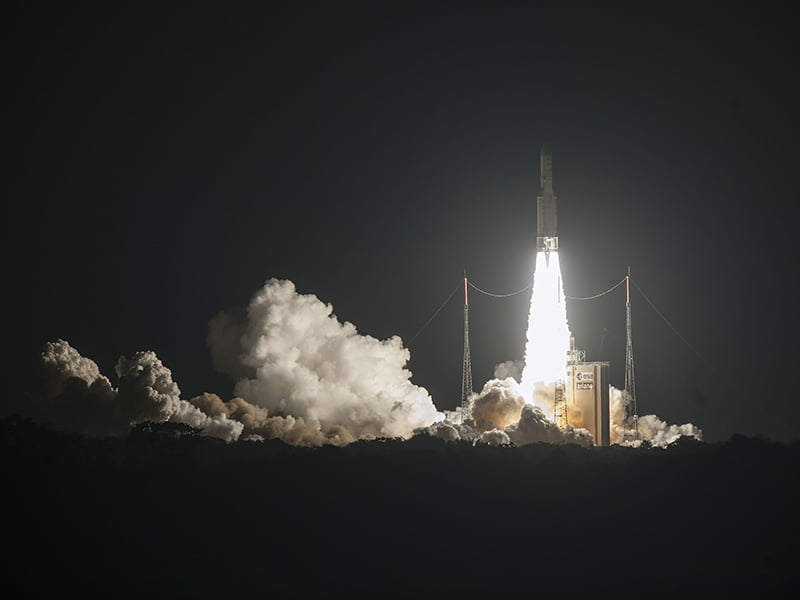Telco giant Optus will lead a bid alongside two multinational Defence contractors for a major satellite communications system project aimed at providing Australia’s military with sovereign capability in space.
Optus and Defence contractors Raytheon Australia and Thales Australia join other bidders that include Lockheed Martin Australia, Airbus and Boeing Defence Australia.

Potentially worth billions of dollars, with some industry estimates putting the cost of the project between $2 to $3 billion, Defence issued a tender for the JP9102 Australia Defence Satellite Communication System on April 22. It forms part of the federal government’s $7 billion investment in Defence space capabilities over the next 10 years.
According to the Defence Integrated Investment Plan (IIP) released in 2016, it was anticipated that between 2016–2029 up to $3 billion would be spent on satellite and terrestrial communications.
Optus’ intention to bid comes as Defence extended on Friday the request for tender process by more than two months, citing COVID-19 lockdowns across Australia and overseas. Originally, bidders had until October 25 to respond but will now have until January 10 next year. The awarding of the contract isn’t expected until the third quarter of 2022.
The scope of the project is to deliver, and support through life, the space, ground and control segments of sovereign satellite communications, according to the tender, “which will provide coverage of the Pacific Ocean and Indian Ocean regions including areas of strategic interest in the vicinity of Australia”.
“The [Sovereign Satellite Communications] will increase the capacity, resilience, agility, and flexibility of Defence’s military SATCOM capability.”
When announcing the project in March last year, former Defence minister Linda Reynolds said it would be “Australia’s first fully owned and controlled military satellite communication constellation”. However, tender documents have since indicated that the government is considering alternatives where it doesn’t necessarily own the satellites.
“In September 2020, Defence advised…that ‘Defence ownership of the Mission System is required for a compliant proposal [to the proposed RFT]’. This advice has now changed,” tender documents published in February state. “Government has asked Defence to consider, as an option, non-Defence owned Satellites.
“For clarity, Defence’s core capability requirements will remain common to both satellite ownership models including the requirement for Defence control of the entire system. All tenderers must submit a Defence owned and operated solution but may also offer, as an option, non-Defence owned satellites.”
Raytheon Australia Managing Director Michael Ward said the company was ready to draw on its decades of expertise in delivering certified and integrated space systems as part of its bid.
“Raytheon Australia has been delivering certified sovereign space solutions and complex system integration to the Australian Defence Force for decades, partnering with them and local industry to unlock the full potential of satellite data,” Mr Ward said.
“We welcome the opportunity to collaborate with Optus and Thales Australia to provide a next-generation satellite technology solution, and we look forward to offering our global space surveillance and operation capabilities to the Australian Government through this important partnership.”
Optus chief executive Kelly Bayer Rosmarin said the Optus bid would provide a unique opportunity to grow Australian skills in a high-tech sector.
“Through Team AUSSAT’s bid, we will bring the best solution, capabilities and experience for the benefit of Australia, and the safety and security of all Australians.
“The bid team…has a unique proposition being the only team with an unrivalled history of owning and operating satellites in Australia, by Australians, for Australians – drawing synergies from two partner companies with their exceptional pedigrees in building and delivering world-class Defence capabilities.”
Thales Australia CEO Chris Jenkins said the team of Optus, Raytheon Australia and Thales Australia would deliver a “genuine sovereign Australian capability”.
“Thales Australia has been a trusted partner of the ADF for more than three decades, delivering advanced secure communication solutions, and we’re proud to partner with Optus and Raytheon Australia on this project.”
Since 1985, Optus has launched 10 satellites, operated 13 spacecraft, and provided support to over 100 international space programs. The telco has also flown the C1 Satellite since 2003, which provides critical mission capabilities for Defence’s operations and, at the time of launch, was the world’s largest Defence-civilian spacecraft.
But the C1 Satellite is near its end of life, with Defence spending $40 million in 2017 to extend its life to 2027 by reconfiguring it to operate in an inclined orbit to reduce onboard fuel usage.
Optus Satellite’s main gateway is in Belrose (NSW) with other operations in Lockridge (WA); Hume (ACT); and Regency Park (SA).
Do you know more? Contact James Riley via Email.

